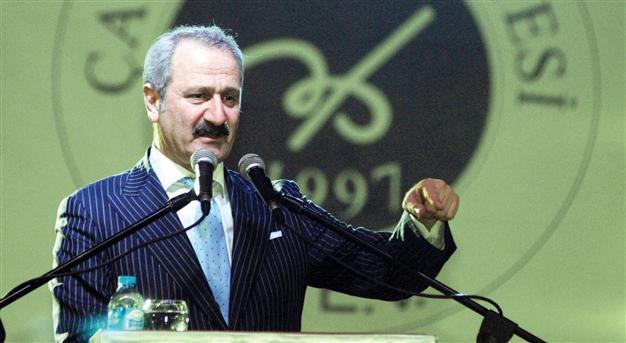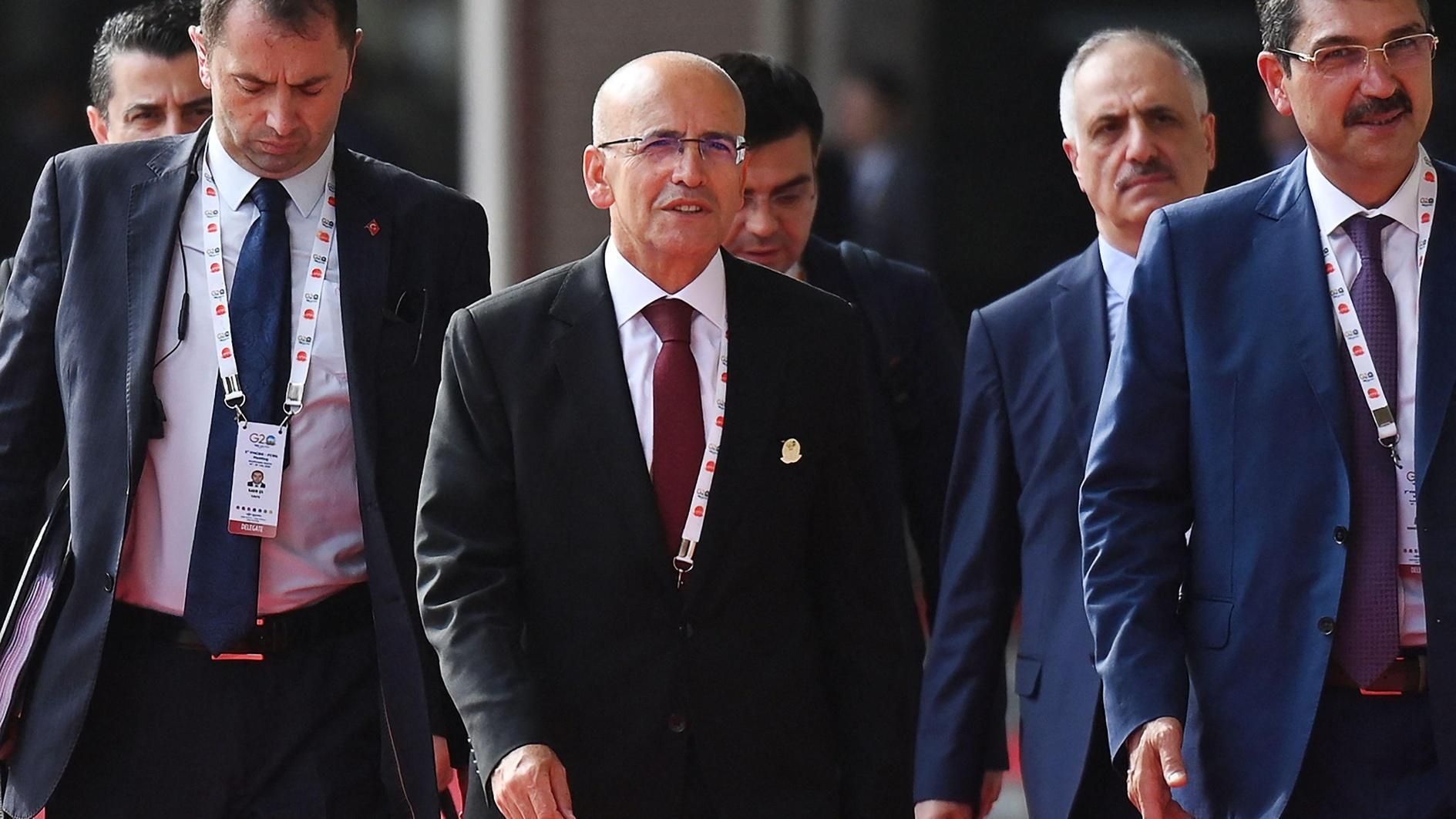Agency upgrades Turkey, minister says not enough
ANKARA - Hürriyet Daily News

Minister Çağlayan says Turkey’s rating should not be at the same level rating as Hungary, Ireland and Guatemala. Turkey has also promised to give money to the IMF, he says. AA photo
The credit rating agency Moody’s upgraded Turkey’s sovereign credit grade by one notch yesterday, citing significant improvements to the country’s public finances and potential to cut its current account deficit, the Achilles heel for the rapidly growing economy. However, Zafer Çağlayan, the Turkish economy minister popular for his humorous critiques about the three big rating agencies, said this was not enough and assured that the Turkish economy was sounder than many economies rated as “investable.”Moody’s said it raised Turkey’s rating to Ba1 from Ba2, just one notch below investment grade and kept its positive outlook for the country, citing an increased ability to withstand economic shocks.
Moody’s Investors Services said efforts to lower Turkey’s debt burden were unlikely to be affected by the “challenging” economic environment or a slowdown in Turkey’s growth rate.
Turkey deserves an “investable” rating, Minister Çağlayan said in a written statement yesterday.
‘Better than EU countries’
“In an environment where the foreign markets are under fire, Turkey’s public debt keeps on decreasing. Turkey’s public debt ratio to gross domestic product is smaller than 21 out of 27 European Union nations as its budget gap ratio to the GDP is smaller than 23 countries in the nation. The rating grade of such a country should be higher than Ba1,” he said.
The minister noted that Turkey’s rating was at the same level as Hungary, Ireland and Guatemala. “Another [rating] company keeps Turkey’s grade at the same level with Guatemala and Portugal, who has received bailout support and whose economy is shaken. Turkey is a country which has already announced that it will give $5 billion to IMF for helping crisis-hit countries,” he said.
Mete Yüksel, deputy manager of investment bank TEB Yatırım, told state-run Anatolia news agency yesterday that the Moody’s upgrade was an “excellent development” that is likely to energize the markets.
Last month, Turkey’s Prime Minister Recep Tayyip Erdoğan accused another ratings agency, Standard & Poor’s (S&P), of bias after it lowered the country’s credit outlook. S&P had said Turkey’s large current account deficit was highly dependent on short-term financing from outside Turkey, making it vulnerable to sudden financial account outflows and refinancing risks.
Turkey’s current account deficit in April stood at $69.2 billion or 8.3 percent of gross domestic product. That is a high level, even though the economy grew by 8.5 percent last year and by 9 percent in 2010.
Moody’s said it expects further improvement in Turkey’s public finances which would improve the government’s capacity to absorb sudden drops in economic growth or financial markets and more policy actions to reduce the current account deficit.
Debt to IMF
“Looking ahead, an upgrade to an investment-grade rating will probably be dependent on Turkey becoming more resilient to balance-of-payment shocks, given the already favorable public-finance metrics,” Moody’s said in a statement.
Turkey borrowed from the International Monetary Fund for decades and hopes to pay back its remaining debt of $1.7 billion to the IMF in April 2013 and not borrow from the fund again.
















